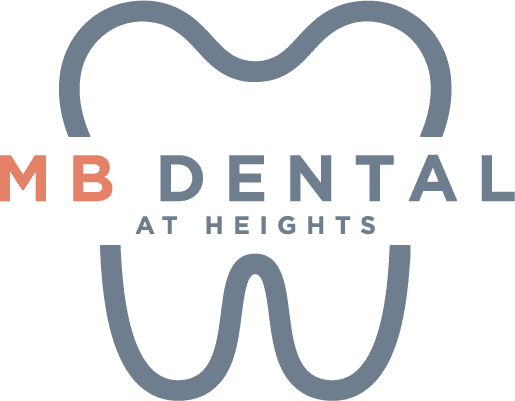Many people are unaware that achieving good overall health starts with taking care of your oral health. The connection between the two is undeniable. When oral health is neglected, it often impacts other areas of the body. This is referred to as the oral health connection. Comprehensive dental care providers focus on treating the whole person, addressing the underlying causes of symptoms instead of just targeting the symptoms themselves.
At MB Dental at Heights in Heights, TX, we offer comprehensive dentistry that focuses on both oral and overall wellness. Our dental care providers are dedicated to guiding you toward better health. Contact us today to schedule your appointment or learn more about how we can help.
Why Opt For Comprehensive Dentistry
Comprehensive dental care providers take a collaborative approach, unlike traditional dentists. Typically, patients only visit traditional dental offices when they have a specific issue. During these visits, they rarely receive insight into what caused their problem or how it could connect to other health issues. There is often little education offered beyond treating the immediate concern.
Comprehensive dental care takes a more holistic approach. By addressing the root causes of oral health problems, comprehensive dentists can often detect signs of broader health concerns. This enables them to offer more personalized care and empower patients with the knowledge they need to take control of their oral and overall health.

Selecting A Comprehensive Dentist
Many patients hesitate to see a comprehensive dentist because they are unsure if it will be covered by insurance. However, these practices function much like conventional dental offices, and many services are covered under various insurance plans. That said, some cosmetic and restorative procedures may require out-of-pocket payment. Since dental coverage is often considered a non-essential benefit, it is important to verify with your insurance provider beforehand.
Given the strong connection between oral and overall health, it is essential for members of a patient’s healthcare team to communicate with one another. However, many primary care providers do not routinely inquire about oral health. With your permission, a comprehensive dentist can alert other healthcare professionals to any potential concerns, helping to create a personalized treatment plan that meets your unique needs.

Lifestyle Changes For Better Health
Because comprehensive dentists focus on both oral and overall health, they can also offer advice on lifestyle changes that benefit both. A balanced diet plays a crucial role in maintaining oral health. Since the food you eat impacts your oral tissues and overall well-being, eating a healthy diet is key. At the same time, maintaining good oral health is important for proper nutrition and digestion. Reducing your intake of sugars, processed starches, and acidic foods can make a big difference in your oral health.
Good oral hygiene habits are equally important. Brushing twice a day with a soft-bristled toothbrush, flossing nightly, and using a fluoride mouthwash help keep your teeth and gums healthy. Make sure to brush gently in circular motions to avoid damaging your enamel. Most importantly, make regular dental visits part of your routine. Comprehensive dentists recommend visiting at least twice a year, though some patients may need more frequent checkups based on their individual needs.
Understanding The Oral Health Connection
According to the Mayo Clinic, oral health is often a reflection of overall health due to the mouth’s natural environment, which harbors bacteria. While most bacteria are harmless, poor oral hygiene can cause these bacteria to multiply, leading to infections or allowing them to enter the body’s respiratory or digestive systems. This highlights the importance of addressing oral health concerns promptly, as they may signal larger health issues — a concept known as the oral health connection.
For example, conditions like cardiovascular disease and diabetes are frequently linked to oral health. In fact, periodontal disease and diabetes have a bidirectional relationship, meaning one can exacerbate the other. Research has also shown that individuals with periodontal disease are more likely to experience serious cardiovascular events, such as heart attacks or strokes. Other conditions that may be connected to oral health include rheumatoid arthritis, Sjogren’s syndrome, and pneumonia.
Setting A Healthy Mouth Baseline
Visiting a comprehensive dentist is an excellent way to maintain both your oral and overall health. During your first visit, the dentist will explain the “healthy mouth baseline” — a model that identifies any areas of concern in your oral health. Working together, you and the dental team will address these issues to ensure long-term wellness. Comprehensive dental visits are much more than routine checkups; they are essential to your overall health.
At the beginning of your visit, you’ll meet with a dental hygienist to discuss your health concerns. They’ll take your vitals, perform an oral cancer screening, and ask about your lifestyle habits, such as sleep patterns and diet. This information will help your dentist develop a customized treatment plan tailored to your specific needs. From there, you’ll work together to set realistic health goals and strategies to achieve them.
